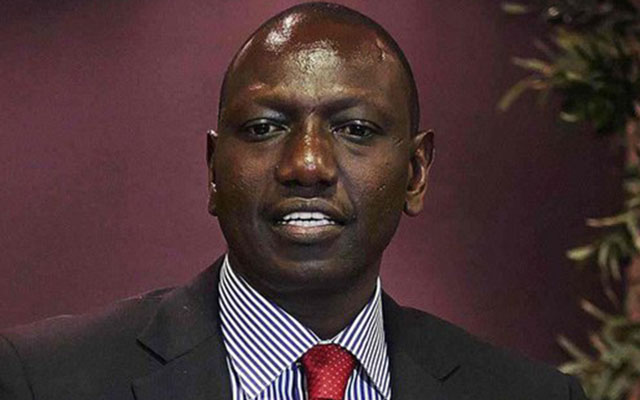Zim joins globe in celebrating World Food Day

Conrad Mupesa and Yeukai Karengezeka
ZIMBABWE commemorated World Food Day last week at Chibero College of Agriculture in Norton where youths in farming pledged to make Zimbabwe food self-sufficient.
The day, which is celebrated annually on October 16, this year ran under the theme: “Leave No One Behind. Better Production, Better Nutrition, a Better Environment and a Better Life”.
While Zimbabwe managed to report tremendous successes in mitigating climate change effects through the introduction of climate-proof agriculture also known as Pfumvudza, youths, including those at various agricultural colleges dotted around the country, have been challenged to invest their energetic lives towards food production.
A farmer from Makonde district, Mr Lincoln Chirinda, said on the day that young people were the food-brigade of the nation.
“Farming is an enterprise that people have been ignoring, including the youths,” he said. “We are walking towards a food self-sufficient nation and as we celebrate this day, I want to encourage students from colleges and youths in general that they have to pull-up their socks as they are the food brigade of Zimbabwe.”
Mr Chirinda, a young farmer and a banker by profession, traded his profession to pursue farming at the family’s Lions’ Den farm where he does maize, soya beans and wheat.
He is also into livestock production focusing of cattle and goats.
Another farmer from Mashonaland Central province, Mr Terrence Muripo, said Zimbabwe had the potential to produce enough meat.
The goat farmer is utilising part of his parents’ 88-hectare farm in Bindura where he has over 500 goats.
He started his project with 37 Mashona breeds from Dande before multiplying to 500 in 2019.
“As time went on, the goats increased to 500 in 2019 shrinking the space that we had,” said Mr Muripo. “We offloaded our local breeds and replaced them with those from South Africa. We cant be a country that fails to have enough meat when we can have goats that multiply easily.”
Mr Muripo challenged youths to venture into the goat farming model and penetrate the Middle East market where goats are widely needed.
Speaking at the same occasion, Food and Agriculture Organisation (FAO), sub-regional coordinator for Southern Africa and representative to Zimbabwe, Dr Patrice Talla called for action and global solidarity to transform agrifood systems in a bid to foster inclusive economic growth, address inequalities, increase resilience.
“FAO has been a trusted partner in providing technical and financial assistance contributing to transforming Zimbabwe’s agriculture sector and ensuring food and nutrition security,” he said.
“FAO is implementing multilateral youth-focused initiatives targeting young people. The projects are providing grants for green-agribusiness start-ups as well as waged employment opportunities.”
World Food Programme (WFP) representative and country director, Ms Francesca Erdelmann told guests that her organisation was committed towards a better production, better nutrition, a better environment, and a better life.
Young farmers, she said, had the capacity to lead better food production that could ensure food security in the future, hence the need to support them.
“Against the backdrop of a rapidly changing climate, there is need to adopt climate-smart agriculture techniques,” Ms Erdelmann. “If we spark interest, innovation and a business approach, young farmers will lead the change and contribute to better production.”
In his remarks, Lands, Agriculture, Fisheries, Water and Rural Development Deputy Minister Davis Marapira said his ministry upheld its commitment to ensuring efficiency and effectiveness in the agricultural sector by implementing policies and strategies that stimulate food and nutrition security.
“My ministry’s drive is premised on leaving no one behind in the journey of transforming our agricultural sector to a more efficient, inclusive, sustainable and resilient agri-food systems for better production, better nutrition, better environment, and a better life,” he said.
“This will guarantee food self sufficiency and increased incomes at both household and national levels. Issues of food and nutrition are multi-faceted, hence the need for multi-sectoral approach for long lasting solutions.
“In respect of the above, my ministry is working diligently with partners in different projects and programmes to end hunger. I urged farmers to continue working closely with agricultural extension staff and following weather updates for guidance on farming operations.”
On veld fires that have destroyed grain, including wheat nearing harvest, Deputy Minister Marapira said such fires posed a great threat to flour self-sufficiency and food security at large.
The veld fires have also claimed several lives across the country this season.
Mashonaland West Minister of State for Provincial Affairs and Devolution Marry Mliswa-Chikoka said the province, which produces over 50 percent of the country’s grain, was ready to increase production with engagements with farmers, including youth and females to heighten farming activities currently underway.
The day saw various exhibitors showcasing organic food items processed from natural raw materials.









Comments